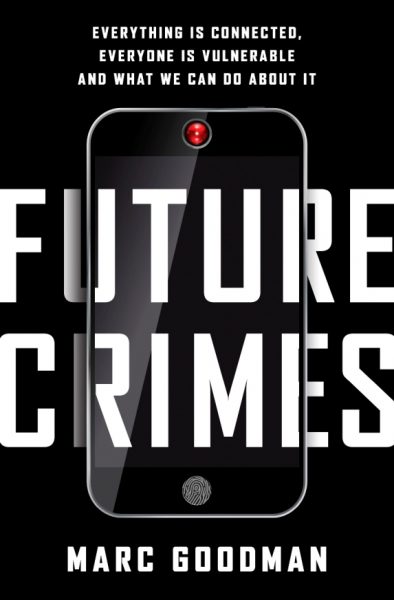
Marc Goodman’s Future Crimes: Everything is Connected, Everyone is Vulnerable and What We Can Do About It (Doubleday, $30), is a must-read. Goodman has spent a career in law enforcement and technology, including serving as a futurist-in-residence with the FBI.
Future Crimes exposes the ways criminals, corporations and countries are using new and emerging technologies against you – and how this makes you more vulnerable than you ever imagined.
Here are two excerpts that stand out:
If you don’t own and control your own online persona, it’s extremely easy for a criminal to aggregate the known information about you and use it for a wide variety of criminal activity, ranging from identity theft to espionage. Indeed, there are many such examples of this occurring, especially for high-profile individuals.
The more data you produce, the more organized crime is happy to consume. Many social media companies have been hacked, including LinkedIn (6.5 million accounts), Snapchat (4.6 million names and phone numbers), Google, Twitter and Yahoo. Transactional crime groups are responsible for a full 85% of those data breaches, and their goal is to extract the greatest amount of data possible , with the highest value in the cyber underground.
In 2013, the data broker Experian mistakenly sold the personal data of nearly two-thirds of all Americans to an organized crime group in Vietnam. The massive breach occurred because Experian failed to do due diligence.
Goodman concludes Future Crimes with an appendix of tips that will help readers avoid more than 85 percent of the digital threats that they face each day. (Turning off your computer at night is one.) Reading the book will help you understand why they are so important.


